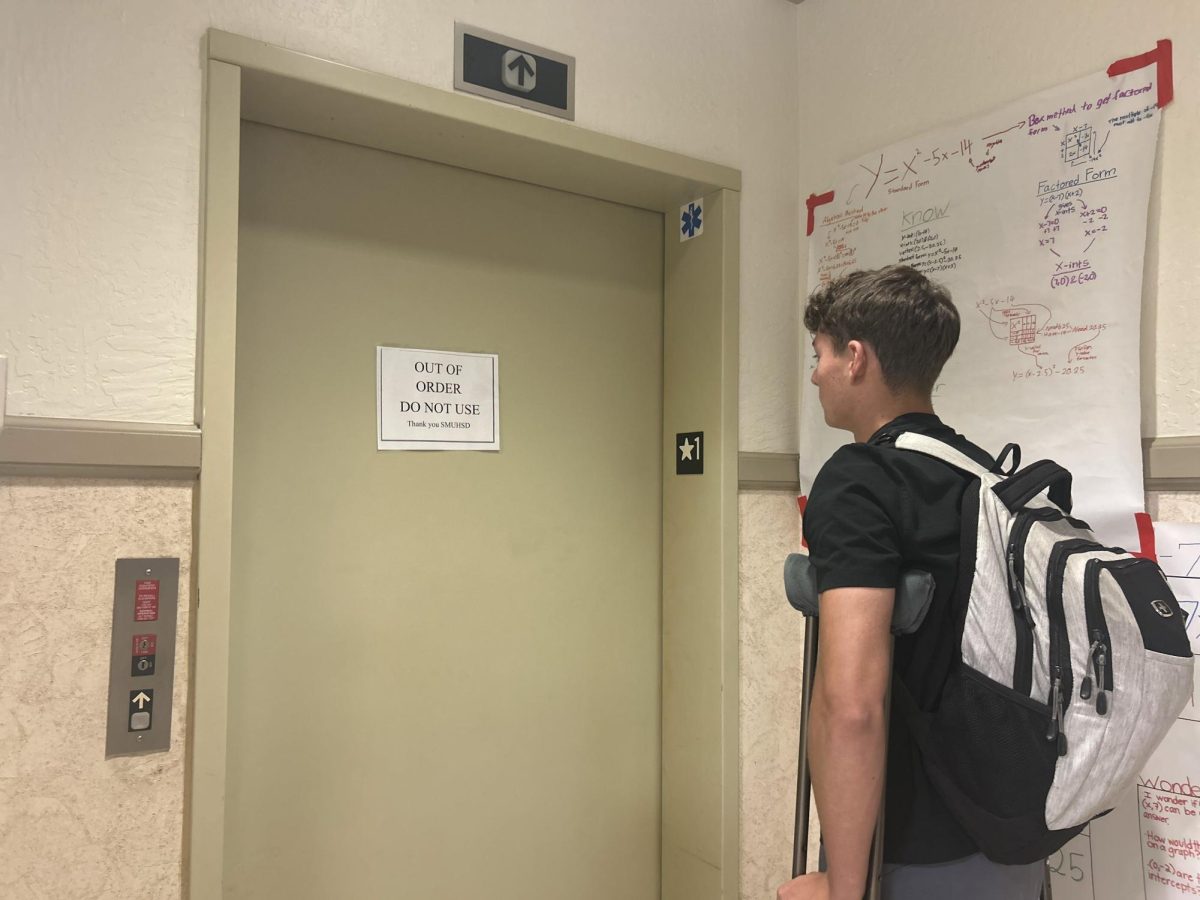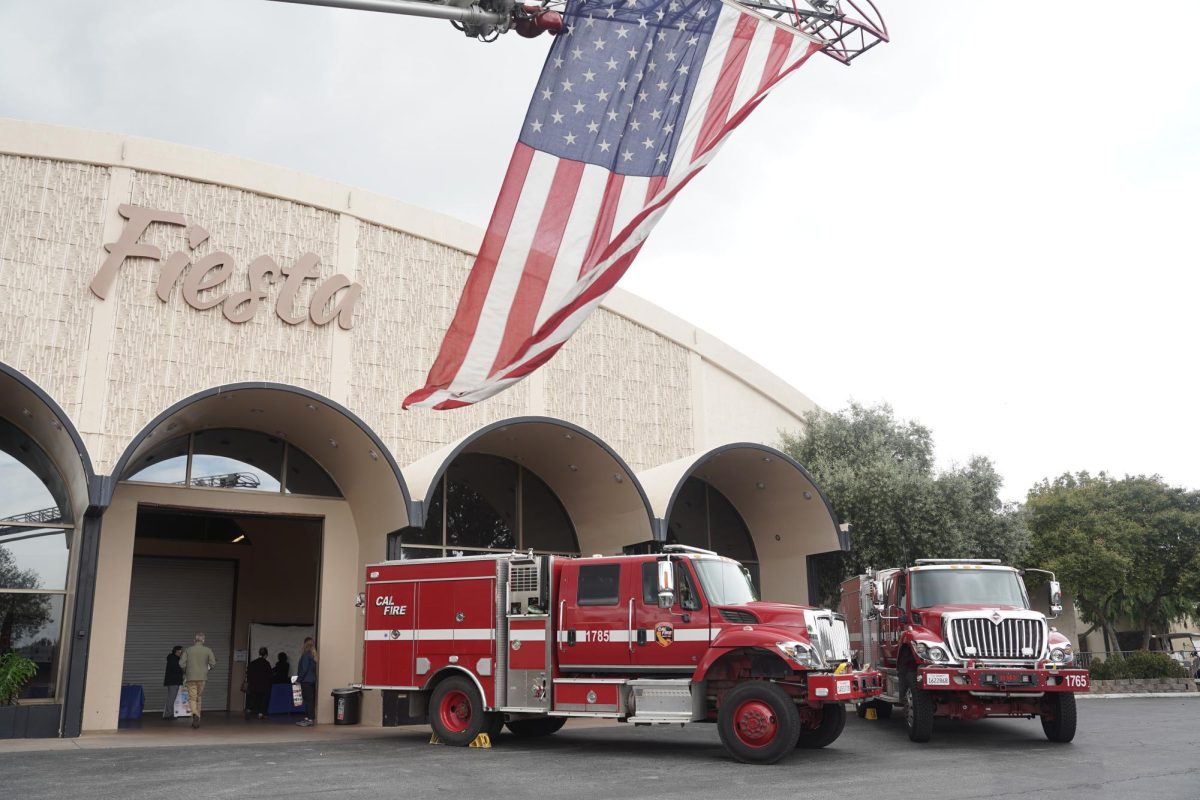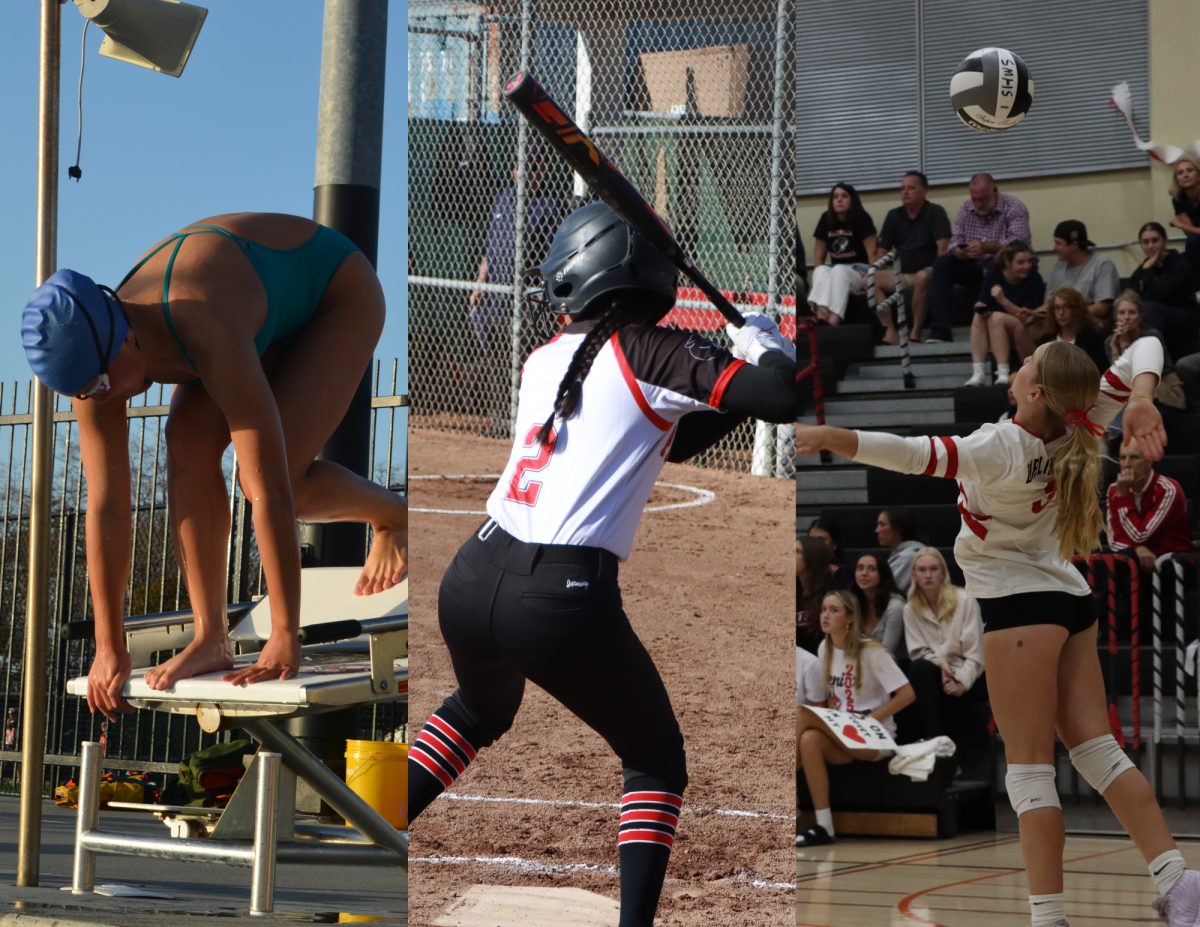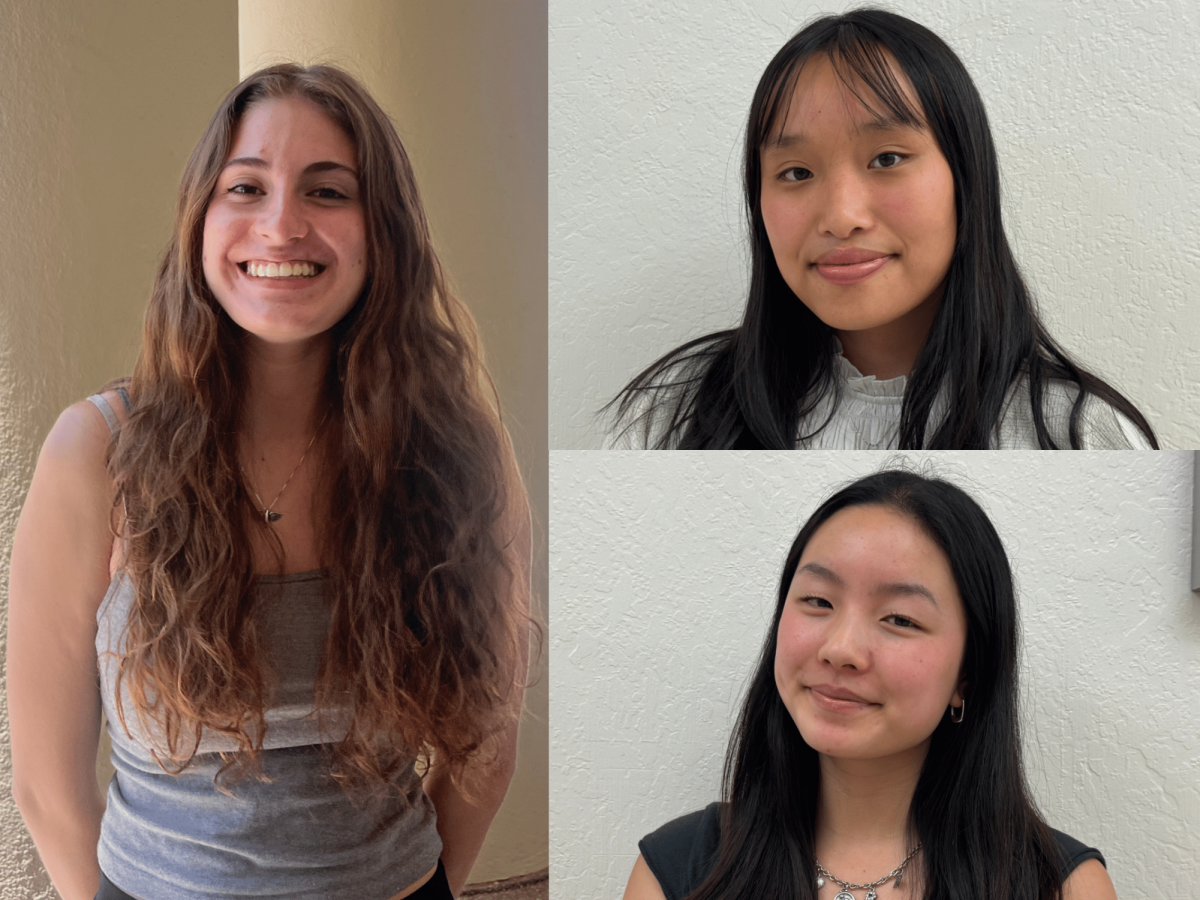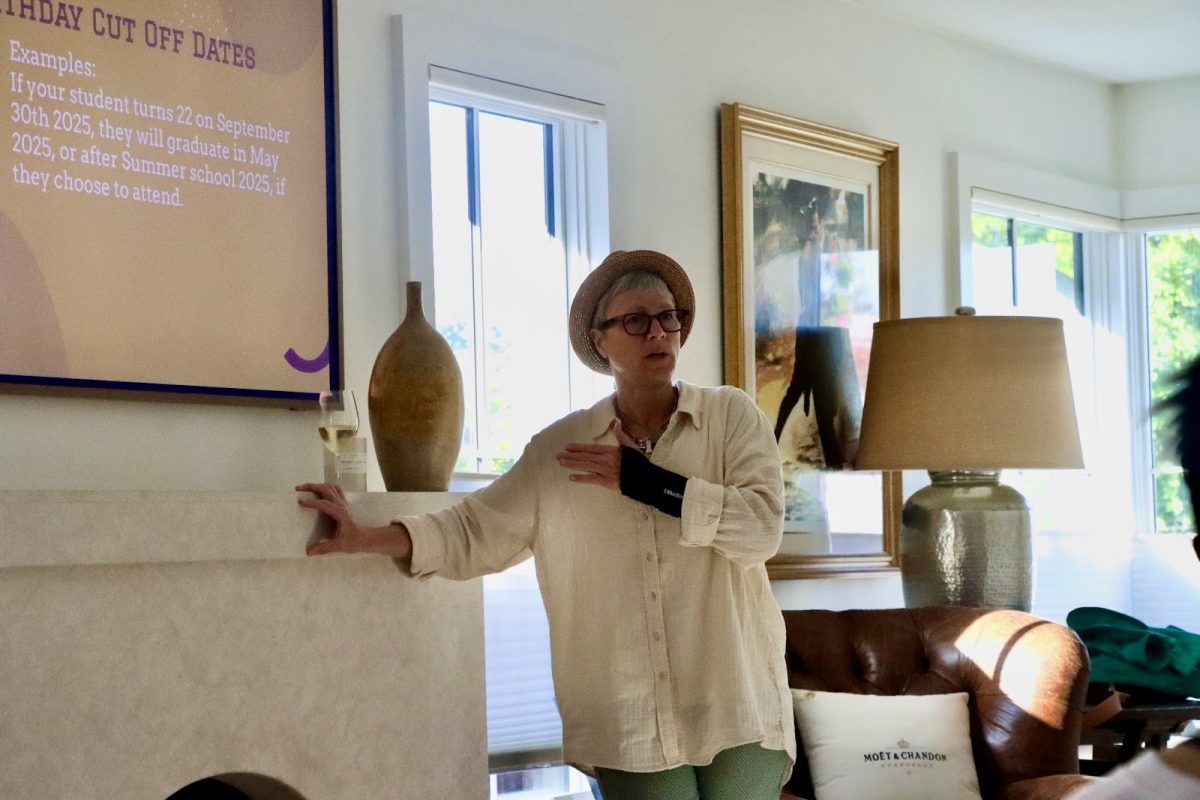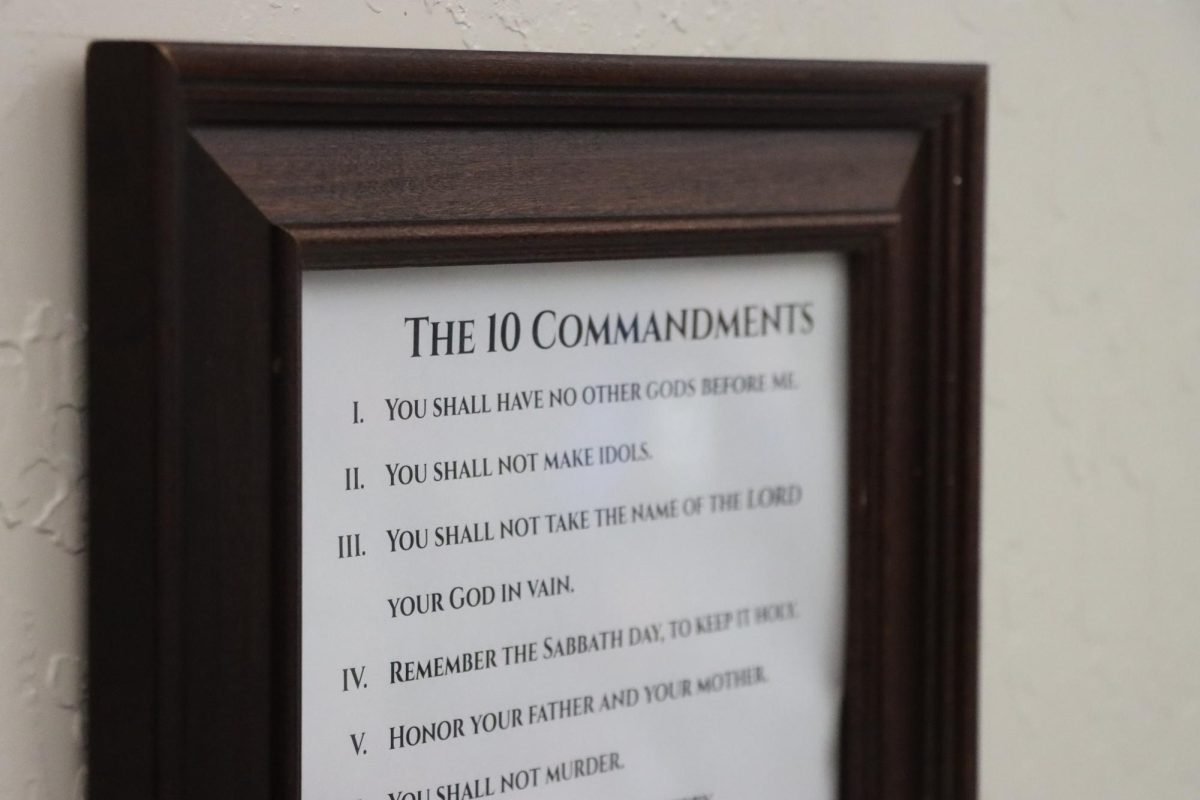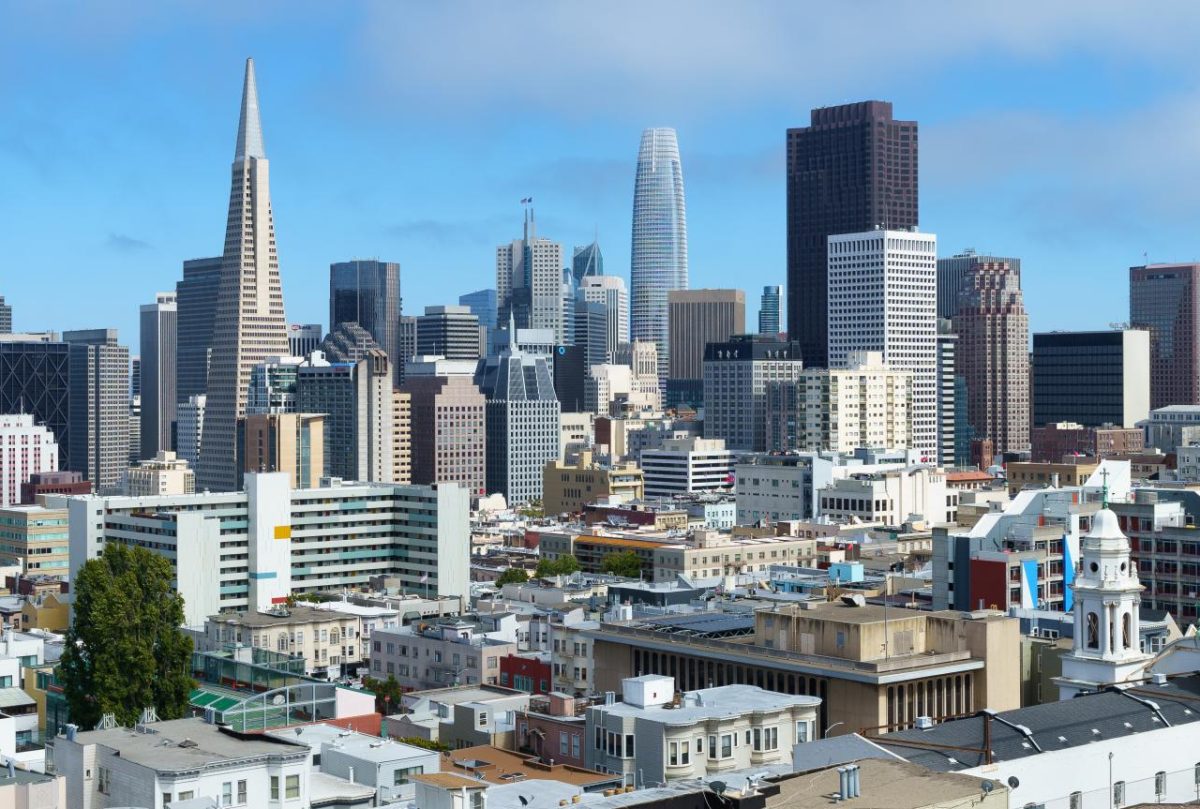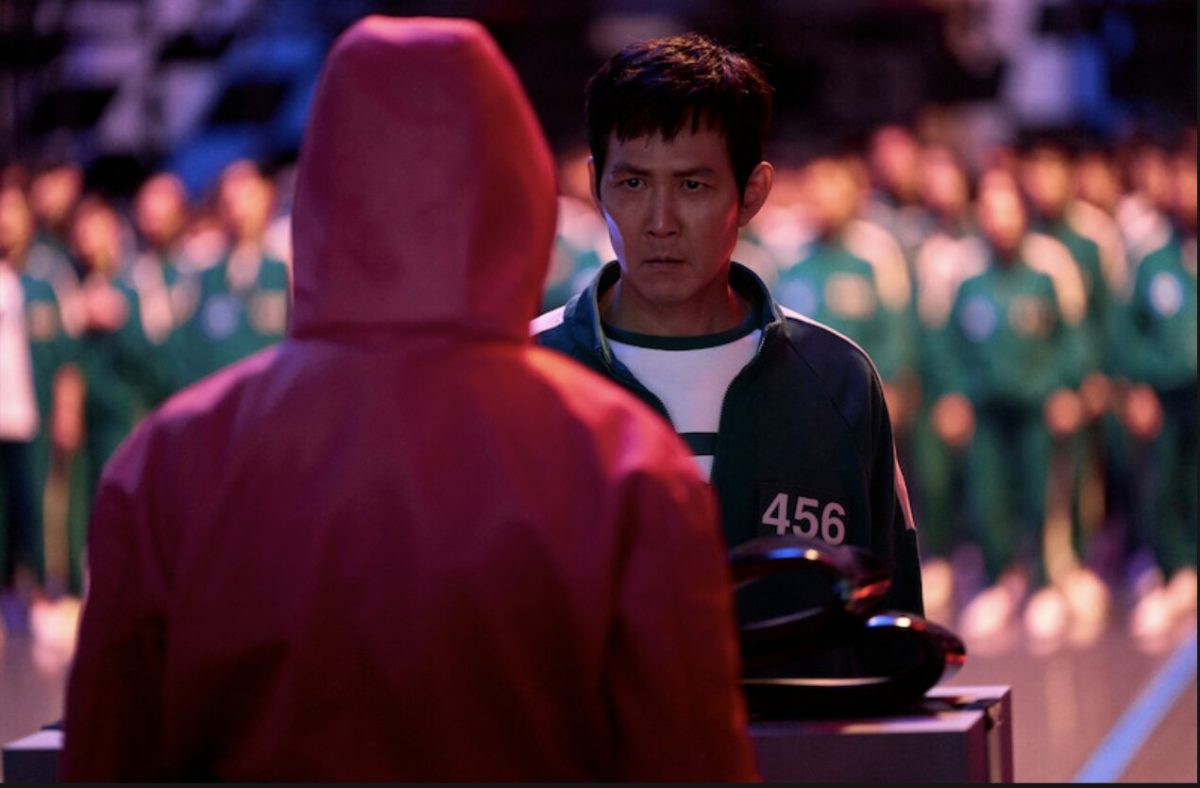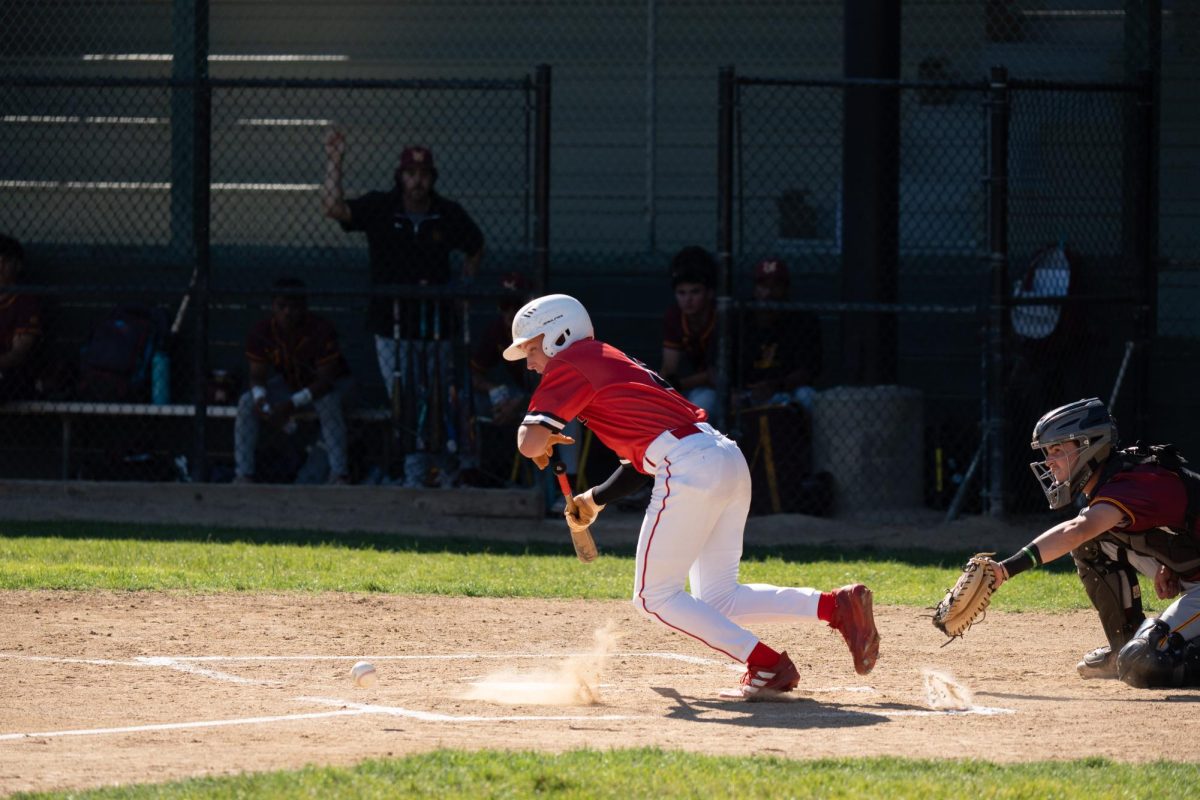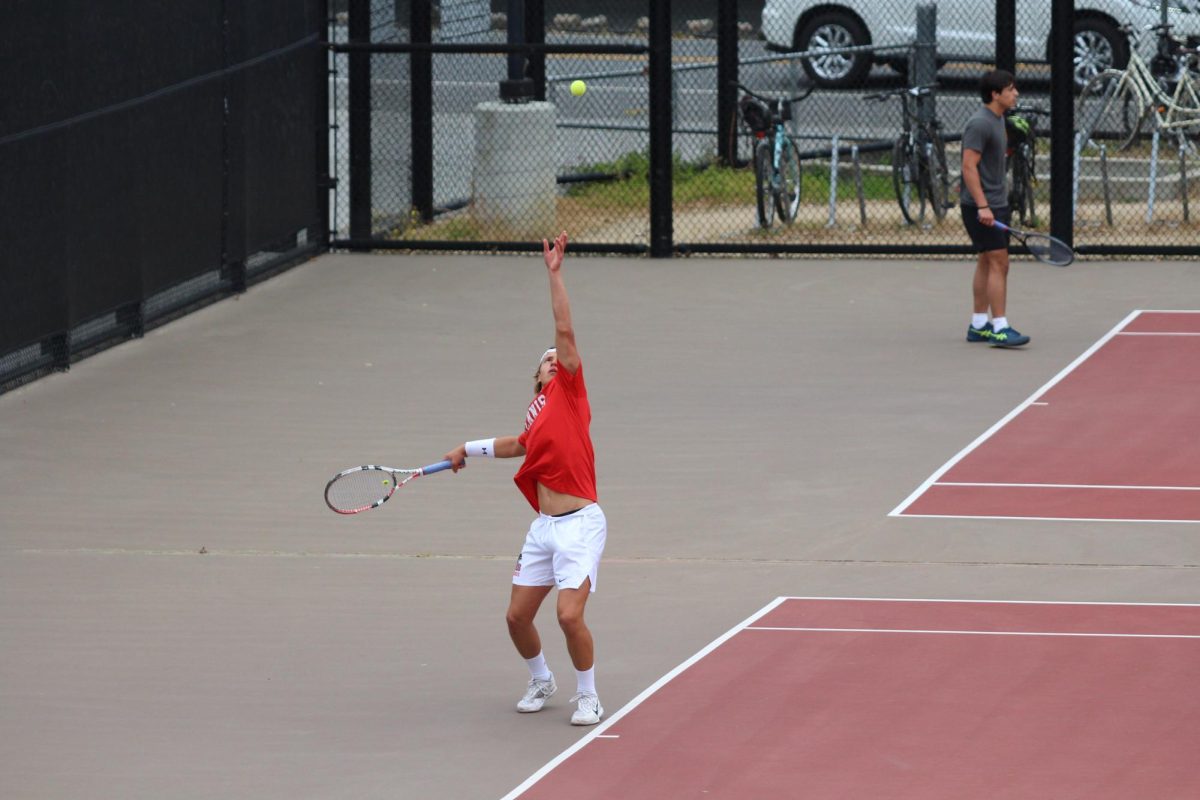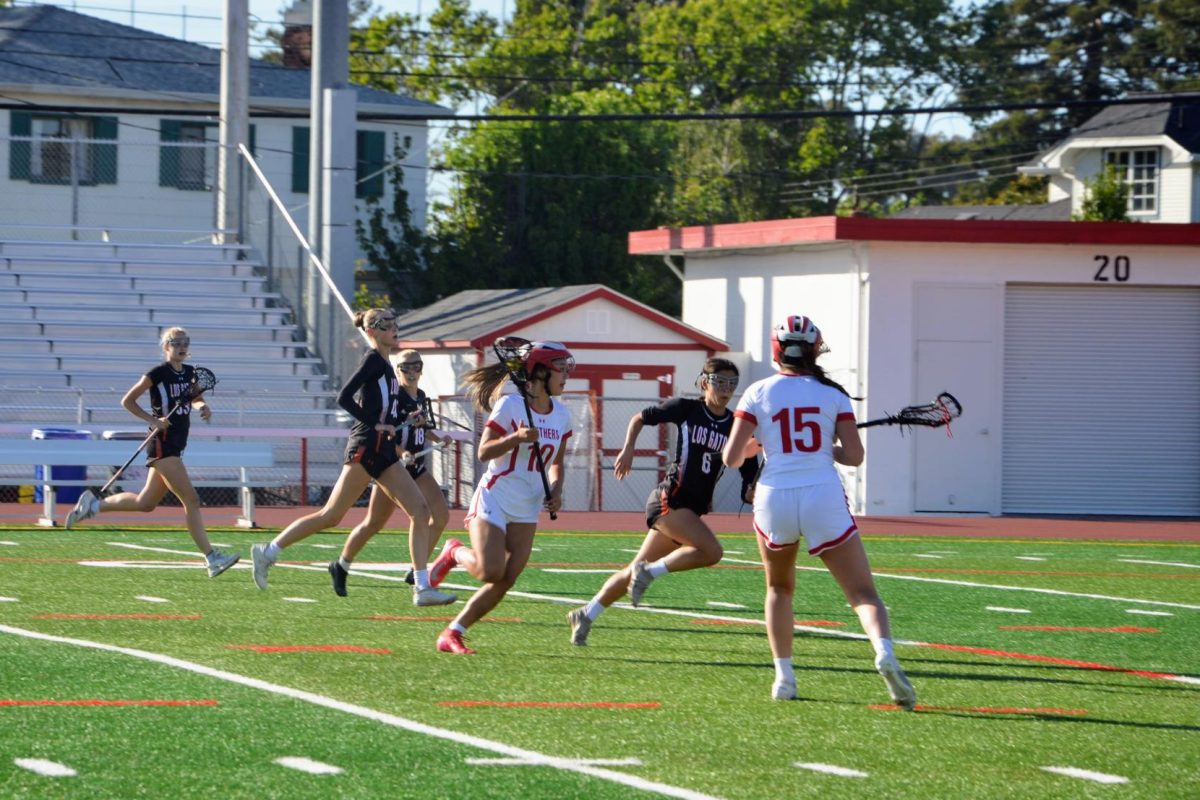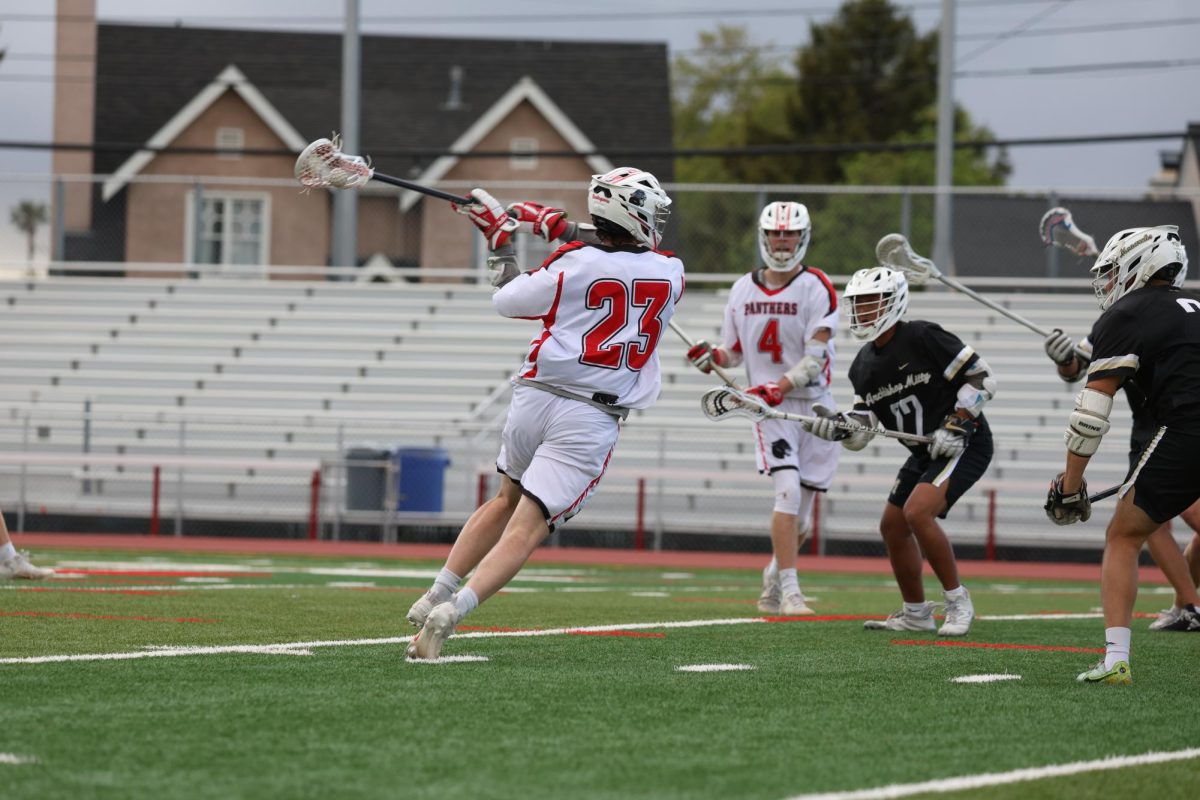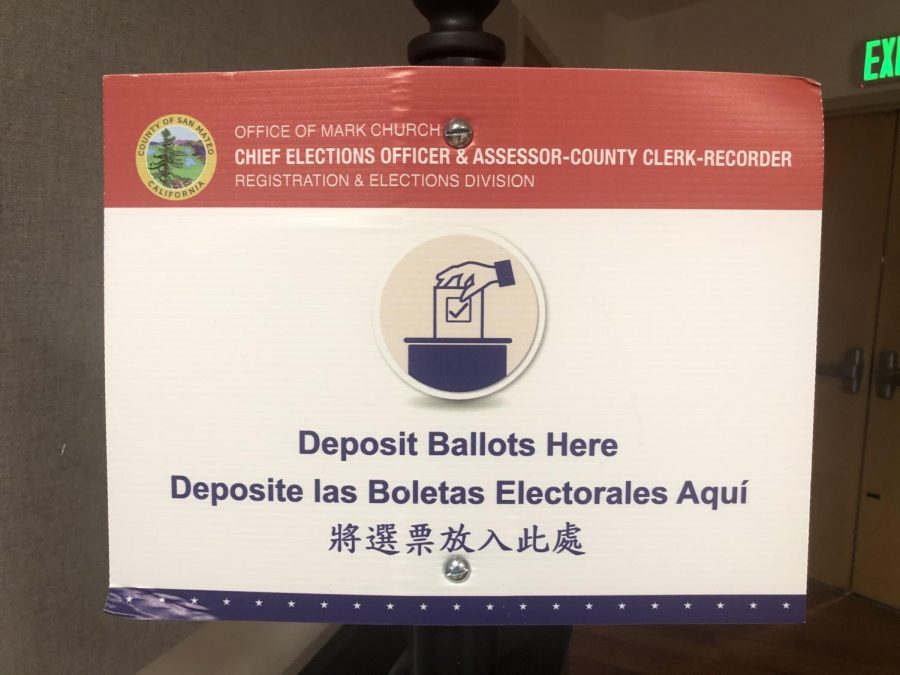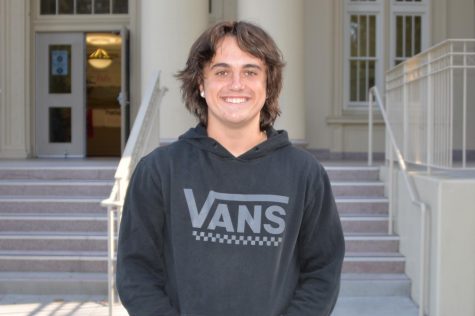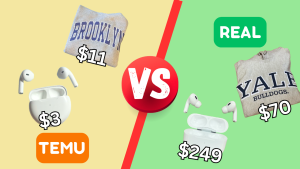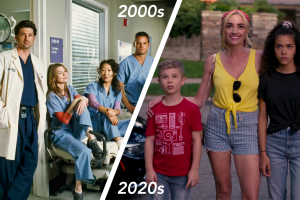Proposition 18 would allow 17-year-olds to vote in some elections
A sign at San Carlos Library’s voting center prompts voters to drop their ballots in the correct box.
November 2, 2020
Proposition 18 (Prop 18) is a statewide ballot measure that would give 17-year-olds the right to vote in special and primary elections, given that they will be 18 by the next midterm or general election. It was proposed by California State Assembly member Kevin Mullin, who represents the district enclosing much of San Mateo County, including Burlingame.
Lowering the voting age is not an entirely new concept in the United States. Eighteen states and the District of Columbia have already passed similar measures allowing 17-year-olds to vote in primaries.
This measure will likely not have an impact until the next primary election in 2022, as no special elections are planned or expected as of now. Unlike most states, who host special elections for senators leaving their posts, if California Senator Kamala Harris were to be elected Vice President on Nov. 3, her replacement would be appointed by Governor Gavin Newsom who would serve the remaining 2 years of her term.
If passed, the proposition would likely cost the county up to $1 million every election cycle on supplies and procedures to allow 17-year-olds to vote. This is seen as a relatively minor cost when taking into account what counties already spend on elections.
Primaries, elections to decide the candidates for midterm and general elections, are especially important in a state as partisan as California.
“A lot of our statewide elections aren’t very competitive, and they can feel like the decision has already been made. In that sense, the primaries matter more than the general election, because they really decide who wins,” Matthew McDermott, who teaches AP United States Government and Politics, said.
The prospect of being able to vote in one of these primaries is exciting to many students, as it gives them more chances to have their voice heard. However, some have raised concerns about the maturity level required to make a well-informed vote, or that students may be influenced by their parents and teachers.
“[17-year-olds] don’t have enough real world experience to be able to knowledgeably vote,” junior Johnny Willey said.
On the contrary, many who support the bill have argued that since those allowed to vote in primaries under Prop 18 would have to be of voting age by the next midterm election, this is flimsy logic. It is also argued that there is not a substantial difference in decision-making skills between a 17-year-old and an 18-year-old.
“We cannot pretend that just because a person is 17-years-old, they are not competent enough to vote, when we have a very large population of people who are 18 years old that have less education and are less mature [than 17-year-olds],” junior Mostafa Elshenawy said.
Critics of the measure have argued that it is indirectly elitist. Across the board, people with lower incomes are less likely to vote than those with higher income, so expanding the ability to vote may benefit the rich more than the poor, as kids with financially stable parents are more likely to be politically active. However, the proposition could also be seen as a way to get students in low-income areas more engaged in politics.
“If it became real to [low income] students that they could vote in June of their senior year, they might become more engaged, and more engaged early on,” McDermott said.
A poll conducted by Probolsky Research indicates that Prop 18 is unlikely to pass, as an estimated 52% of voters do not support the measure. However, funding for support of the proposition far outweighs the opposition, so Prop 18 is far from dead on arrival.



